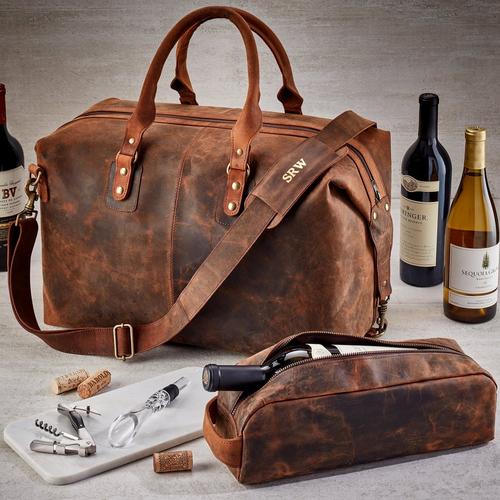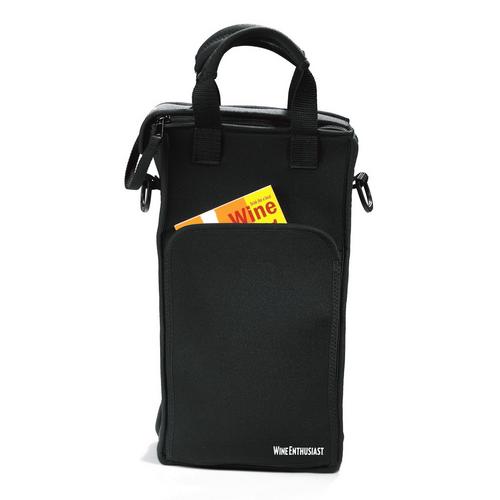A recent survey reported that 65% of respondents missed travel so much over the last year they’d be willing to give up social media for a month to have a safe vacation. For those who prioritize ecological travel, there are endless on- and off-screen considerations needed to plan a wine trip.
Travelers with sustainability objectives must “examine every leg of the trip,” says Liz Thach, MW, an author and professor of wine at Sonoma State University.
As tourism resumes around the world, wine lovers have an opportunity to slow down and rethink how they travel. From transportation, hotels, wineries, restaurants and even the shops patronized, no service bundles sustainable choices together for wine lovers. So, here’s how to make wine travel choices that you and future generations can live with.

Transportation
Thach suggests renting a hybrid or electric vehicle for road trips. Sustainable Wine Tours in Santa Barbara will even drive you around in a Tesla.
For flights, look to carbon-offset programs, where travelers pay to “offset” or make up for the emissions that flights produce. Programs include World Land Trust, supported by naturalist Sir David Attenborough, and Gold Standard, which lets customers contribute to programs like reforestation in Nicaragua or clean drinking water in Rwanda.
A growing number of cities offer bike share programs, says Thach, while popular wine country bike tours include MountNBArrel in Hood River, Oregon, and East End Bike Tours in New York’s Long Island. Some places offer robust train systems, like that between Paris and Bordeaux.
Reusables
Do you buy bottled water? Pack a reusable collapsible container like the Hydaway or Nomader, or a flat-packable Vapur.
Single-use coffee cups are as much a problem as plastic bottles, so bring a Stojo or Hunu, and even this collapsible kettle by Tayama for the on-the-go brewer.
It’s easy to pack recycled or organic cotton totes. Bring them to wineries to reduce single-use plastic bags.
Accommodation
Look for wine country properties dedicated to environmental principles, and do your due diligence when researching them. LEED (Leadership in Energy and Environmental Design) properties are considered the gold standard in green building strategies like energy efficiency. However, some have been accused of exaggerating environmental achievements, so examine properties individually.
In Napa Valley, for example, Bardessono has achieved Platinum certification, and review of its credentials shows a host of ambitious initiatives like solar and geothermal energy infrastructure, salvaged construction materials, treatment and recycling of grey and black water, low-flow water fixtures, and drought-tolerant and native landscaping.

Regenerative Travel highlights properties that seek to improve the environment and surrounding community. Cofounder Amanda Ho has vetted resorts and hotels, including two in wine country.
Tuscany’s Oasy Hotel occupies a former hunting lodge in a nature reserve, and the Sublime Comporta, on the coast of Portugal, grows food in its garden, partners with community fishermen and farmers and recycles wastewater, among its low-impact and supportive initiatives.
Wineries and Eco-Tourism
The ultimate way to align your values and wallet is to patronize regions and wineries that demonstrate commitment to sustainable, organic and/or biodynamic agriculture. More than 99% of Sonoma County vineyards are certified sustainable, says Karissa Kruse, president of the Sonoma County Winegrowers trade group.
“I have heard from consumers, wine lovers and even our local community that they feel good about being a part of the sustainability and climate movement that is happening [here],” says Kruse.
Sonoma County Winegrowers has partnered with several wineries to create self-guided vineyard walks that showcase sustainability practices, which it highlights on its website.
Demand for nature hikes and educational eco-tours has grown, though most global tourism board sites haven’t caught up. It’s often easier to find “dog- and kid-friendly winery recommendations than eco-friendly wine tourism activities,” says Thach.

Research the sustainable, organic and/or biodynamic wineries in the region you’d like to visit, and then check their websites for eco-tours. Slow Wine, an annual guide offered by Slow Food, recommends wineries that meet criteria like wine quality, adherence to terroir, value for money and environmental sensitivity. It offers comprehensive listings for Italy, Slovenia, California, Oregon, and it plans to soon offer similar picks for New York and Washington.
In California, Benziger offers one of the best known eco-tours. The company created its Tribute Estate Tour & Tasting “so that guests can have a real-life experience of how biodynamics happen in the vineyard,” says Chris Benziger, a brand ambassador. “When they’re immersed in the experience, they rediscover the power of nature. They have an ‘a-ha!’ moment that this is what farming is all about.”
The 90-minute tour, limited to groups of eight, costs $60 per person and explores the Sonoma Mountain estate vineyards, followed by an alfresco tasting of four biodynamic wines.
Regina Weinstein, director of marketing and retail for Honig Vineyard & Winery in Napa, says consumers “love, love, love” its eco-tours. For $45, a Honig guide brings guests around the vineyard to learn about bird boxes, beehives, owl perches and water management strategies, as well as Honig’s role in restoring the Rutherford Reach of the Napa River.
“Eco-tours are particularly popular now,” says Weinstein. “Younger generation visitors are the most concerned with the environmental impact of the companies they support.”
Habitat restoration has taken a lead role at Jordan Winery. CEO and proprietor John Jordan read articles on the dwindling Western monarch population, which inspired the company to create a pollinator sanctuary along its four-mile Vineyard Hike trails ($110 per person).
“We know that many pollinators have lost their habitat due to wildfires over the last five years,” says Jordan. “We felt like we had the land…and the will to do something.”
So far, the winery says it’s planted 10 acres of sanctuaries with 102 species of plants, which support at least 60 species of butterflies and moths. When the Earth Week hikes were announced in April, they sold out within an hour, says Lisa Mattson, Jordan’s director of marketing & communications.
In Oregon, Knudsen Vineyards, which is certified Low Input Viticulture and Enology (LIVE) and Salmon Safe, offers a guided vineyard hike followed by a lunch and tasting ($65/person).

Restoration and Rewilding
Consider a rewilding day, where you restore an area to its uncultivated state, or visit an ecosystem restoration camp to boost the positive impact of your travels.
Rewilding Europe, a conservation group that restores and protects natural processes and wilderness across the continent, has efforts underway near wine regions in Portugal, Italy, Germany, Moldova, Croatia, Romania and Bulgaria.
In Portugal’s Greater Côa Valley, the Wild Côa Network presents an association of sustainable businesses that promote responsible, educational, and cultural travel, like Portugal A2Z Walking & Biking tours and Casas do Juízo, a rural village surrounded by vineyards.
To raise awareness for rewilding efforts, Symington Family Estates launched a new wine packaged in a recyclable bag-in-tube container. It says that a portion of proceeds are donated to the Rewilding Portugal initiative.
Ecosystem restoration camps offer both pop-up days and multiday camps.
In 2018, California’s Camp Fire devastated 153,336 acres, destroyed more 18,000 structures and killed 85 people. The Camp Fire Restoration Project, also called Camp Paradise, was started after the fire to support reforestation and the community around the town of Paradise. In one event, campers helped locals restore burned lands, and organizers taught new skills and shared resources like native trees better adapted to fire.
Most overnight camps shuttered during the pandemic, but many are slowly reopening, with several on the horizon for Australia, Portugal, Spain and France. Camp Mama Adama in the Alentejo, for example, engages campers to restore trees affected by a fungus. Activities range from cleaning and replanting new trees to work in the garden, Sunrise meditations are offered in the morning, and local wine is served in the evening.






